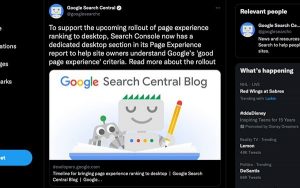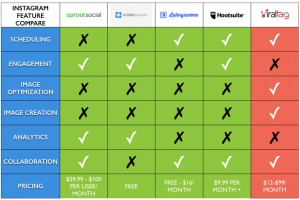Very few crack teams of social care agents start out that way. No matter how effective your classical support agents are, it’s rare to have ones who are already well-adapted for social, which demands that they become both brand ambassadors and 140-character wordsmiths all at once.
For many leaders, this switch can resemble asking the symphony orchestra to get on stage and juggle.
It takes some effort, to be sure, but with a combination of the right people and processes, your agents can be up there singing and dancing in no time.
Step one, get the right people on the bus
Creating a highly effective team starts with, as business management guru and author of Good to Great Jim Collins puts it, “getting the right people on the bus, the wrong people off the bus, and the right people in the right seats.” This is because your hiring practices set the stage for all else that follows.
For some, this means starting a brand-new team and selectively choosing talent. For others, it means training your existing resources as they are. For both situations, great team players will bring everyone up and reduce the learning curve while bad ones will drag it all down.
Make sure that your hires are enthusiastic about social care, and exhibit these traits:
- Personability: Can they small talk? Will customers feel a connection to them through social? It’s a small thing with a big impact – much of social communication is ambiguous and they’ll have to be able to keep the conversation rolling.
- Pro tip: Give new hires tweets or posts to respond to under timed conditions and ask yourself if you’d feel comfortable with their responses being published in the Daily Mail.
- Confidence: Can they resolve things on their own or do they need to escalate? Hire for self-starters who won’t burden management.
- Curiosity: There’s a lot to learn in social and it’s always changing. Are they perennial learners who will do that on their own?
- Pro tip: Forbes offers a great idea for revealing this: ask them what they’ve taught themselves in the past six months, and ask what questions they have for you.
- Articulate: How is their spelling and word choice? What they say under pressure will have to accurately reflect the brand, and they have to choose their few words wisely.
- Resilient: Speaking of pressure, how do they deal with stress? We’ve often found that the best predictor of calmness under duress is previous experience in fast-paced environments, such as restaurants, security, transportation, and many others.
- Empathy: We saved the best for last: do these hires genuinely love people? If they do, it’ll show through in their work. Just as NPR reported that you can actually hear someone smiling over the phone, the same is true over social media.
With a busload of empathetic, personal, and resilient agents, you can now give them a process.
Step two, give them structure
Good people become great at social care only with practice. Your training organization and structure should be focused around giving them mock opportunities and the space to play around, make mistakes, and get comfortable with being heard publicly. Just as it’s awkward to see yourself on video for the first time, so it can be for social.
Only after they’ve begun to practice, arm your agents with concrete examples of what good and bad responses look like so that they can model themselves after it. Create a social care playbook for common scenarios, but as the popular military aphorism goes, “no plan ever survives first contact with the enemy.” The best you can do is to prep them with talking points and then you’ll have to trust your resilient hires to take it from there. That’s why you hired these folks, right?
Finally, training doesn’t end when they go live. It’s an ongoing and evolving process and for those using a social care platform, you can set training-wheel-like systems in place so that you can periodically check and approve their responses until you’re fully confident.
Then, institute ongoing training and feedback so that they skills remain fresh and they grow.
Agents for change
Follow these steps and you’ll create an effective, self-driven, constantly learning and adapting social care team. But, before you do too much planning, remember the words of Jim Collins: “First the people, then the direction—no matter how dire the circumstances.”
If you can hire agents who are resilient, confident, personable, and empathetic, they’re going to give life to the structure that you give them, and that’s where real social care magic happens.
Want to learn more? Download the Definitive Guide to Social Customer Service and learn how to build your team and playbook!
Digital & Social Articles on Business 2 Community(60)
Report Post






